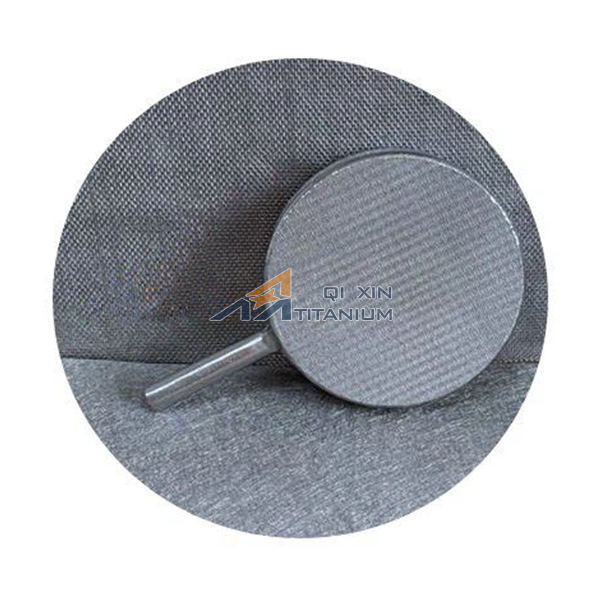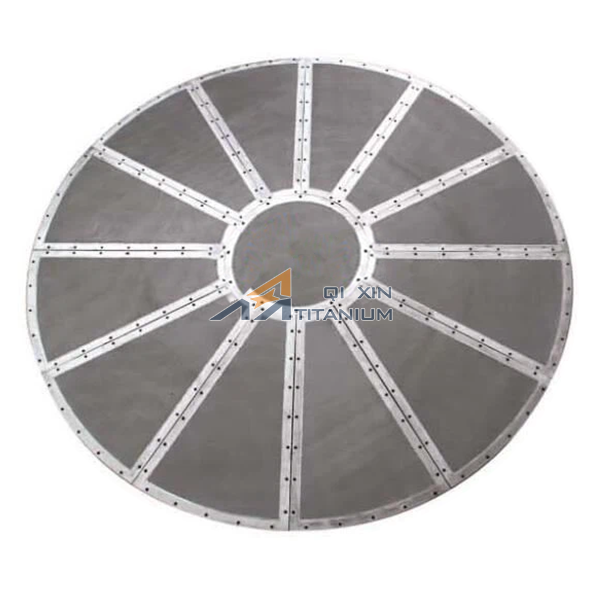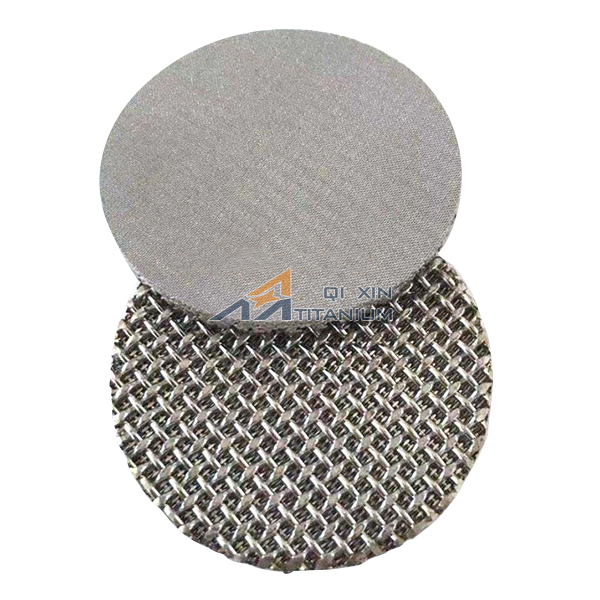What are the advantages of using sintered porous metal filters in food and beverage applications?
2025-03-28 09:52:49
Sintered porous metal filters offer numerous advantages in food and beverage applications, making them an invaluable component in various processing and filtration systems. Sintered porous metal filter for food and beverage excel in removing contaminants, ensuring product quality, and enhancing overall efficiency. Their robust construction, comprised of interconnected metal particles, provides exceptional durability and resistance to harsh environments. Sintered porous metal filters boast superior filtration capabilities, capturing particles as small as microns while maintaining high flow rates. Additionally, their ability to withstand high temperatures and pressures makes them ideal for demanding food and beverage processing conditions. The use of these filters also contributes to extended equipment lifespan, reduced maintenance costs, and improved product consistency, ultimately benefiting both manufacturers and consumers alike.
Enhancing Product Quality and Safety
Efficient Contaminant Removal
Sintered porous metal filters are highly effective in removing various contaminants from food and beverage products. Their complex pore structure efficiently captures particles, microorganisms, and other impurities that could affect product quality, taste, and safety. This advanced filtration process helps maintain purity, ensuring compliance with strict industry regulations. Additionally, their durability and resistance to high temperatures and corrosive substances make them ideal for maintaining hygiene and consistency in food and beverage processing..
Maintaining Product Integrity
Unlike some other filtration methods, sintered porous metal filters effectively maintain the original taste, aroma, and nutritional integrity of food and beverages. Their chemically inert metal composition ensures no unwanted reactions occur, preventing any alteration in flavor or quality. This makes them ideal for applications where purity is critical, such as in brewing, dairy processing, and pharmaceuticals, where even slight contamination or flavor transfer could compromise the final product.
Consistent Filtration Performance
The uniform pore structure of sintered porous metal filter for food and beverage guarantees stable and consistent filtration performance over their entire lifespan. This exceptional reliability plays a vital role in ensuring consistent product quality across various batches and production cycles. As a result, manufacturers can maintain high standards, reduce variability, and build trust with their customers, ultimately enhancing consumer satisfaction and fostering long-term brand loyalty in competitive markets.
Operational Efficiency and Cost-effectiveness
Extended Filter Lifespan
The robust construction of sintered porous metal filters contributes to their exceptional durability. These filters can withstand harsh operating conditions, including high temperatures, pressures, and corrosive environments, resulting in a longer operational lifespan compared to traditional filtration media. This extended durability translates to reduced replacement frequency and lower overall maintenance costs.
High Flow Rates and Low Pressure Drop
Despite their excellent filtration capabilities, sintered porous metal filters maintain high flow rates with minimal pressure drop. This characteristic allows for efficient processing of large volumes of food and beverage products without compromising production speed or energy efficiency. The optimized flow dynamics of these filters contribute to reduced pumping costs and improved overall system performance.
Easy Cleaning and Regeneration
Sintered porous metal filter for food and beverage are designed for easy cleaning and regeneration, often through backwashing or chemical cleaning processes. This feature not only extends the filter's service life but also minimizes production downtime associated with filter maintenance or replacement. The ability to clean and reuse these filters multiple times further enhances their cost-effectiveness in food and beverage applications.
Versatility and Adaptability in Food and Beverage Processing
Wide Range of Pore Sizes
Sintered porous metal filters are available in a wide range of pore sizes, typically ranging from sub-micron to several hundred microns. This versatility allows manufacturers to select the most appropriate filter for their specific application, whether it's removing fine particles from beverages or separating larger contaminants in food processing. The ability to customize pore size ensures optimal filtration efficiency for various products and processes.
Compatibility with Different Food and Beverage Types
These filters are compatible with a diverse array of food and beverage products, including dairy, spirits, juices, oils, and more. The inert nature of the metal material used in sintered porous filters ensures that they do not react with or contaminate the products being processed. This broad compatibility makes them a versatile solution for various segments of the food and beverage industry.
Integration with Existing Systems
Sintered porous metal filter for food and beverage can be easily integrated into existing food and beverage processing systems. Their compact design and adaptability to different housing configurations allow for seamless incorporation into various equipment setups. This flexibility enables manufacturers to upgrade their filtration capabilities without the need for extensive modifications to their current processing lines.
Conclusion
The advantages of using sintered porous metal filters in food and beverage applications are multifaceted and significant. These filters offer superior contaminant removal, consistent product quality, and operational efficiency, making them an invaluable asset in modern food and beverage processing. Their durability, versatility, and cost-effectiveness contribute to improved product safety, reduced operational costs, and enhanced overall production efficiency. As the food and beverage industry continues to evolve, sintered porous metal filters stand out as a reliable and adaptable solution for meeting increasingly stringent quality standards and consumer expectations.
Contact Us
To learn more about our sintered porous metal filters for food and beverage applications and how they can benefit your specific processing needs, please contact us at info@mmo-anode.com. Our team of experts is ready to assist you in finding the perfect filtration solution for your food and beverage production requirements.
References
Johnson, A. R., & Smith, B. T. (2019). Advanced Filtration Technologies in the Food and Beverage Industry. Journal of Food Processing and Engineering, 42(3), 156-172.
Patel, S. K., & Mehta, R. D. (2020). Sintered Metal Filters: Enhancing Safety and Quality in Food Production. Food Quality and Safety, 4(2), 89-103.
Chen, L., & Wang, Y. (2018). Comparative Study of Filtration Methods in Beverage Processing. International Journal of Food Science and Technology, 53(7), 1645-1658.
Müller, H., & Schmidt, K. (2021). Innovations in Food Filtration: A Comprehensive Review. Critical Reviews in Food Science and Nutrition, 61(15), 2487-2503.
Thompson, E. L., & Brown, C. M. (2017). Cost-Benefit Analysis of Advanced Filtration Systems in Food Manufacturing. Journal of Food Engineering, 213, 62-75.
Yamaguchi, T., & Nakamura, H. (2022). Sustainability and Efficiency in Food Processing: The Role of Modern Filtration Technologies. Trends in Food Science & Technology, 120, 123-137.
Send Inquiry
Related Industry Knowledge
- Are sintered metal filter cartridges customizable?
- How does a round air stone diffuser work?
- How long does a round air stone diffuser last?
- Maximizing Performance with Titanium Anode Baskets in Electroplating
- How Electrolyzed Water Titanium Mesh Electrode Improved Water Quality in Industrial Plants?
- How Reliable DSA Titanium Electrodes Reduce Operational Costs in Electroplating?
- Optimizing Current Density: Best Practices for Titanium MMO Anode Implementation
- What are the benefits of using an air stone diffuser in a pond?
- Advantages of MMO Coated Titanium Rod Electrodes in Electrochemical Processes
- What is an air stone diffuser for a pond and how does it work?





